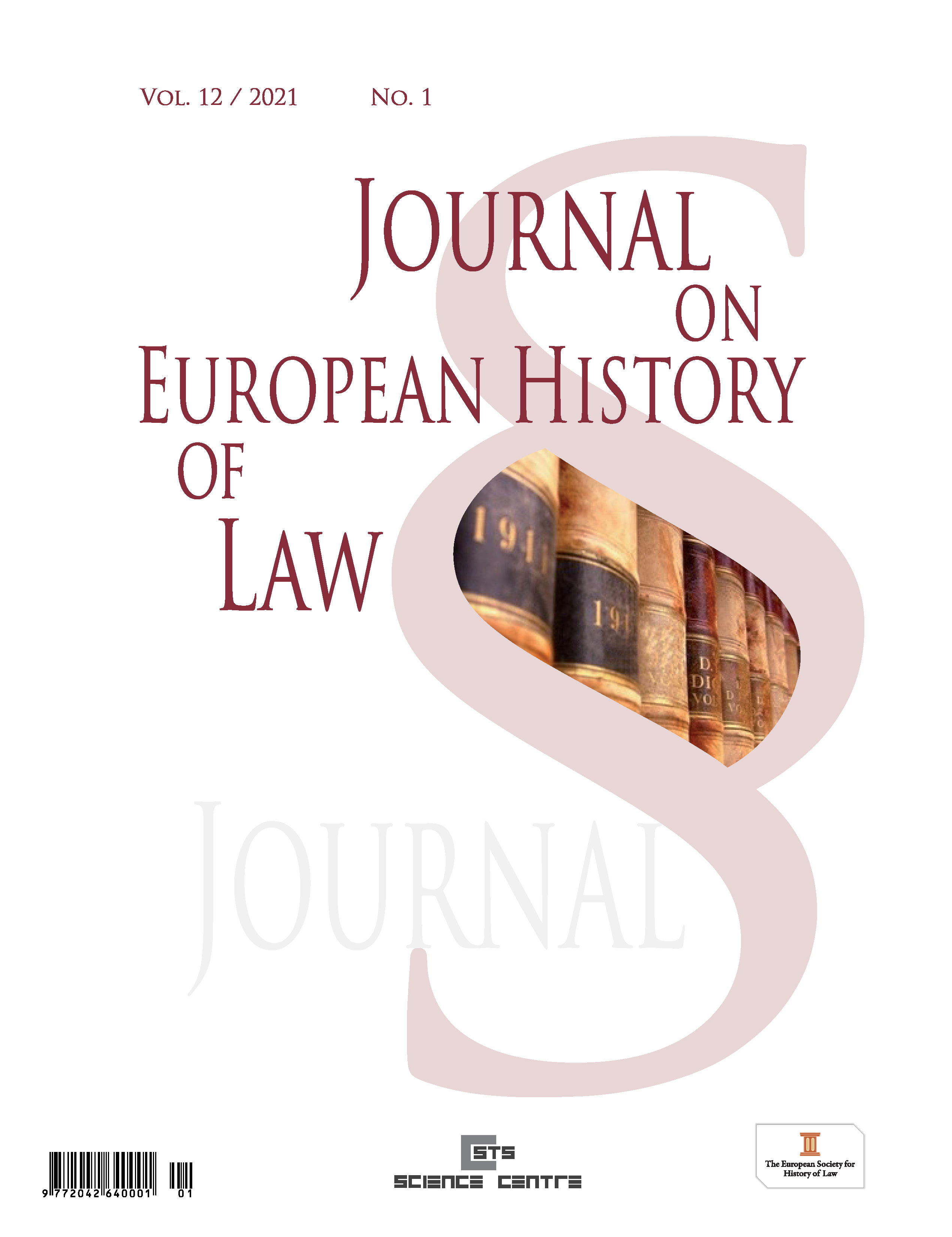The Evolution of the Hungarian Csemegi Code from the Aspect of Early Criminal Policy (1908–1948)
The Evolution of the Hungarian Csemegi Code from the Aspect of Early Criminal Policy (1908–1948)
Author(s): József PalloSubject(s): History, Law, Constitution, Jurisprudence
Published by: Evropská společnost pro právní dějiny, z.s.
Keywords: Csemegi Code; Hungarian legal development; criminal law codification; criminology and criminal law; correctional (penal) law; general experiences.
Summary/Abstract: The Hungarian Csemegi Code, which was the first act – in a modern sense – that – obviously besides being a substantive law – had provisions that addressed questions related to the execution of its contents, was a milestone in the development of Hungarian criminal law. The vivid development (emanating from the urging will to reduce the gap between Hungary and the more developed countries, the progressively strengthening economy and the escalation of relevant correctional academic literature) apparent during the three decades that followed 1880 also resulted in a more lucrative period for the field of corrections as well. While towards the end of the 19th century, the classical school of correctional science mostly revolved around the questions of security, discipline, infrastructure and technical issues while being less focused on actual legal questions, the effects of the positivist school – by the 20th century – have seeped into its framework, resulting in the introduction of the so-called personality-influenced individualization, aimed at reducing the chances of recidivism and thus avoiding committing repeated offences. This process is symbolized by the several amendments made to the original Csemegi Code. Present study will address this historical and legal development arc in a more detailed manner.
Journal: Journal on European History of Law
- Issue Year: 12/2021
- Issue No: 1
- Page Range: 113-120
- Page Count: 8
- Language: English

